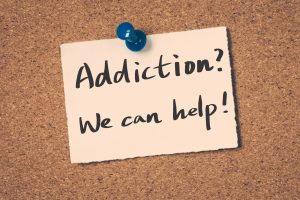Substance Abuse Counseling, as well as general counseling can help individuals better control urges, change habits and live more productive lives with healthier choices and non-maladaptive practices. Substance Abuse Counselors play key role in helping clients find ways to change, become resilient, and live healthier lives.

Please also review AIHCP’s Substance Abuse Practitioner Certification and see if it meets your professional needs in counseling
Acknowledging a Problem in Substance Abuse
Unfortunately, many individuals who suffer from addiction need first to wish to change. The process of change is the key. The Change Scale in Psychology looks at the challenges of helping a client see the need for change. Only until a client acknowledges a problem can a client truly change. Even after intellectually identifying a problem, one must become unified emotionally in the deeper yearning to change. Once the need for change is identified, a client can begin to explore the problem, find solutions and execute the necessary changes to transform. Unfortunately, this is a long process, with setbacks, but ultimately, it is direction that pushes forward.
Addiction and Compulsions
The addictive act is habitual in itself. It was not initially habitual but merely an isolated act. The act was initially committed out of curiosity, randomness, or a maladaptive act to deal with trauma, grief, depression, anxiety or various stressors. The randomness of the act overtime evolved from merely an isolated event to a consistent series of act which eventually became habitual. In all human acts, certain responses and acts to stress can turn to habit. A person whether it involves substance abuse, drugs, or even particular actions such as gambling, or porn addictions, eventually enters into a pattern of actions in response to various stressors. Some habits in fact can be healthy such as exercise, but even when exercise becomes a habit that is damaging the body or dominating time within a day can become an issue. Maladaptive coping is not only wrong within itself but also excessive, even if good. If coping is not at least moderate to a stressor, then habits can form that lead to addicting behavior. Of course, in regards to substance, there exists more than a mental need to reframe, but also a physical addiction. For some, fortunately, chemical addiction does not occur to genetics, but for others, they can become fiercely dependent not only mentally but also physically to function. Addiction hence is not only persistent and habitual without thought but also a necessary state to function for the person.
Compulsions to act upon a substance or behavior are also powerful drives. A compulsion is not necessarily persistent but it is a powerful and overwhelming urge to engage in an activity or take a particular substance. A compulsion is usually preceded by obsessive and intruding thoughts while addiction exists within a natural habit of acting. Counselors, especially Substance Abuse Counselors can help clients better control compulsions through various therapies and help produce change and transformation through these therapies. They can also help clients fight through the never ended battle of addiction.
Good Therapy states
“Symptoms that suggest a compulsive behavior has become problematic include:
- Interpersonal and professional relationship problems
- Concealment of the behavior
- Denial of a problem
- Inability to stop the behavior
- Alternating feelings of anxiety, confusion, shame, or elation that revolve around the behavior
- Withdrawal from or a lack of enjoyment in other activities
- Desire only for the company of others who pursue the activity or, to an opposite extreme, the urge to conduct the activity only in isolation
- Fear surrounding the potential repercussions associated with discontinuing the activity”
“Addictions and Compulsions”. Good Therapy. 2019. Access here
Rewiring Oneself and Substance Abuse
Obviously, those who are not addicted but facing compulsions can escape the demon of maladaptive coping via substances or practices, but those who are chemically dependent face a life long battle. After acknowledging the necessity of change, individuals need to dedicate themselves to more adaptive coping strategies and removing themselves from the temptations. The occasion of sin is a powerful pull not only for the addicted but also those who face serious compulsions and temptations with a particular substance, activity or vice. How one rewires and reframes the nature of the addiction is key. Understanding first and foremost that it is maladaptive, excessive and unhealthy starts the important process of detesting what it is and what it does to the individual. This turning away from habit though requires not only removing oneself from the situation and bad occasions and “friends” or places, but also working on rewiring oneself in how one responds to triggers and stressors that previously pushed one to the activity or substance.
Hence in counseling, a Substance Abuse Counselor will help a client discuss the urges, what the client feels and what other coping strategies one may employ. For instance, if someone who feels stressed turns to smoking, a counselor may suggest when these urges arise, what are some other ways to calm down that you may be comfortable utilizing to help reduce stress other than smoking. The key is to help the client rewire oneself and instead of using the addictive maladaptive habit and to begin to find other ways to find relief from the particular trigger.
Therapies in Counseling for Addiction
Many of the therapies that exist in general counseling can be applied for addiction as well. Obviously first and foremost, a Rogerian and Humanistic Approach is key. Empathy to the suffering of the individual is key. This is involves helping the person identify one’s feelings and find ways for one change. This involves helping the person see where he/she exists and where one wishes to be. This involves one’s perceived self and then the person’s real self. Helping a person cross the bridge from real self to ideal self involves the entire empathetic process of Rogerian therapy. It also involves non-judgmental attitudes that allow the client to express his/her addictions in a safe place. Furthermore it involves empathetic confrontations when necessary to help the client recognize the necessity for change and how the client’s addiction and behaviors is not only destroying oneself but also that of his/her family, friends, social life, professional career and overall health. Rogerian therapies can also show the necessary empathy in helping those who relapse and help one move forward in developing better resiliency.

In addition, CBT or Cognitive Behavioral Therapies can be employed to help the client reframe life and reframe addiction and how maladaptive practices are only ruining one’s life. This may involve returning to the initial issue of depression, trauma, PTSD, or anxiety that prompted the maladaptive coping. Understanding the source and reframing it through CBT strategies can help the client start anew with a new meaning about the primary issue and ways to better deal with it.
Finally, group therapies and support groups are key in helping clients with addiction move forward. This is especially true with those with little social or family support at home. Support groups can help individuals share stories and find strength with similar persons. It can help one see others who understand oneself as well as see the success of others. Furthermore, such programs as AA 12 Step Program can help clients take responsibility for one’s actions can help one develop the skills necessary to move past addiction.
Beyond psychological interventions, some cases require deeper and more drastic interventions which require detox and short or long term facilities, out patient care or even hospitalization. Interventions may also require various medications to help a person. Ultimately, the disease of addiction has its extremities. Some require more drastic measures to become clear of the substance so that true therapy can begin.
Conclusion
Addiction is disease that destroys lives. Whether it is behavioral, chemical, or substance, addiction tears a person away from the real problem through maladaptive practices that harm the person. It leads the person down a darker path that merely alleviates the primary issue only temporarily but leads to longer lasting health, mental and social problems. The habitual hold on the person requires professional, spiritual and empathetic help which also in many cases includes support from others. Ultimately, the person must acknowledge the problem at all levels and search to find a solution. Substance Abuse Counselors as well as Mental Health Counselors can play key roles in helping individuals live with addiction and transform one’s live.
While there are different professional levels of substance abuse counseling, some human service professionals are trained but only certified working under a licensed director, while others are also licensed professional counselors. AIHCP’s Substance Abuse Practitioner Certification looks to help human service professionals attain a certification in addictions to help them better help those afflicted with addiction. Please also review AIHCP’s Substance Abuse Practitioner Certification Program and see if it meets your academic and professional goals. The program is online and independent study and open to qualified healthcare and human service professionals looking to help others in the area of addiction. Whether it is working in a call center, or applying a certification with an existing licensure, AIHCP’s Substance Abuse Practitioner Program can help enhance one’s knowledge and professional background.
Additional Resources
Pederson, T. (2021). “How Are Substance Use Disorders (SUDs) Treated?”. PsychCentral. Access here
“Treatment of Addiction”. Psychology Today. Access here
“Treatment of Substance Use Disorders”. (2024). CDC. Access here
“Drug Addiction”. Mayo Clinic. Access here
Webster, A. (2024). “Cognitive-Behavioral Therapy (CBT) for Addiction and Substance Abuse”. American Addiction Centers. Access here



